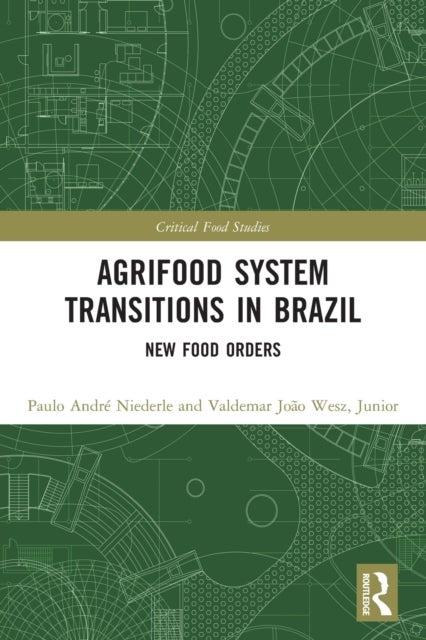
Agrifood System Transitions in Brazil av Paulo Andre Niederle, Valdemar Joao Wesz Junior
499,-
<P>This book explores the agrifood system transitions in Brazil to provide a new understanding of the trajectory of agriculture and rural development in this country. It accentuates the increasing diversifi cation and hybridization of food production and consumption practices throughout history. </P><P>With a framework that combines convention theory, neoinstitutional approaches and practice theory, this book suggests the concept of "food orders" which represents different arrangements of practices, institutions and sociotechnical artifacts. By exploring the interrelations between these elements, the book looks at six different food orders: industrial, commercial, domestic, aesthetic, civic and fi nancial, in tandem with examples of practices, sectors and territories to understand the dynamics of each one. This aids in understanding the main tendencies of the agrifood sector in such a vast country that, being a major player in global food markets, also affect production and consum








